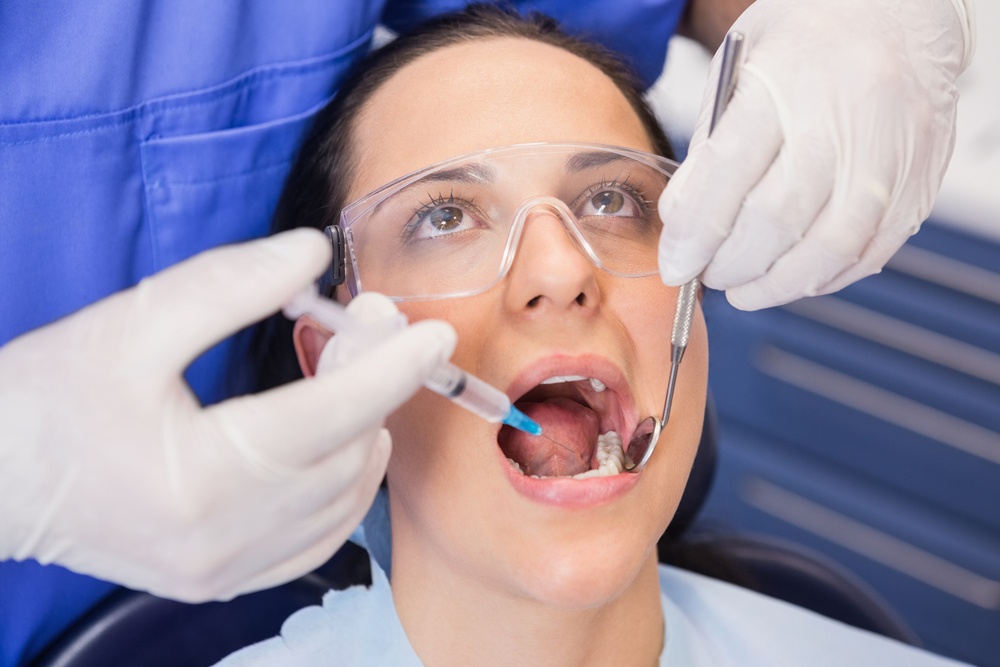
Whether you took a particularly hard hit in hockey, have experienced poor oral health, or you’re aging, you have now found yourself with one or more missing teeth. It’s just like you are a kid again, but this time instead of a Tooth Fairy leaving money under your pillow you will likely be the one shelling out cash.
Tooth loss is no longer a money-making opportunity — in fact it’s quite the opposite. Without the protection of a tooth, your gums are exposed to food and bacteria they otherwise wouldn’t be. And, since not everyone experiences tooth loss, proper care isn’t really common knowledge — so we are here to help. Here are the best ways to care for your gums after losing teeth and ultimately avoid costly, subsequent procedures down the line.
Gum care
Quick disclaimer: when brushing your teeth, you are supposed to brush your gums. With that out of the way, know that your daily oral hygiene routine doesn’t change that much when you’re missing teeth. Dentists recommend you still brush the area the same as you would if there was a tooth there. Many people with all their teeth still neglect their gums when brushing, so don’t fall victim to bad habits and skip proper gum cleaning in the absence of a tooth.
Denture care
If you’ve had tooth extractions or are missing multiple teeth, you will likely have full, or partial, dentures. Whether you wear dentures permanently or temporarily until you get dental implants, it’s important to keep them clean to avoid bacterial buildup so be sure to practice good hygiene as you would with your real teeth. Food can get trapped between the gums and your dentures which can create a lot of irritation and gum pain. And, if it gets ignored, it can even progress to inflammation or infection.
"Without the protection of a tooth, your gums are exposed to food and bacteria they otherwise wouldn’t be."
Ideally, you will remove temporary dentures during meals, just like with orthodontic retainers, to avoid damage and improve cleanliness. However, if you must leave dentures in to eat from time to time, be sure to wash them off after the meal.
Before putting in your dentures in the morning, and when you take them out at night, brush them like you used to brush your missing teeth — just be sure to clean the retainer part too. Always take your dentures out at night before you go to bed to prevent them from drying out your mouth and causing irritation on your gums. It’s also a good idea to soak your dentures in an overnight cleanser, such as Efferdent, at least once a month.
Proper cleaning will not only prevent bad breath and the risk of damage to your dentures, but will also cut down on gum pain and the chances of gum disease caused by poor hygiene.
Getting to the “root” of the problem
Unless your teeth were forcibly knocked out during some trauma, it’s likely your tooth loss stemmed from an oral health issue with the tooth itself or gum disease. If you’re currently experiencing gum pain where you’re missing teeth, the cause is probably the same.
Gum diseases like gingivitis or periodontitis are generally caused by bacteria buildup in the form of dental plaque. Regular brushing and flossing can help fend off plaque, and regular trips to the dentist are the best way to prevent gum disease. Dentists recommend getting a professional cleaning and examination twice a year. And, while the cost of these visits can quickly add up, the cost of ignoring your oral health can add up even quicker.
Make trips to the dentist more affordable with the Dental Solutions dental discount program. The program entitles members and their entire household to savings from 20 percent - 50 percent on regular checkups, various procedures and specialty dental care, all for less than $10 per month. Join Dental Solutions to learn more about how to save on dental care and avoid gum disease through proactive, professional care.

